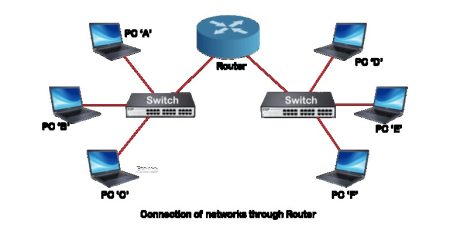26
Mar
Why Africa Should Brace up in Networking Technology
The Digital Divide is Real
While parts of the world enjoy 5G, smart cities, and seamless digital experiences, many African communities still struggle with basic internet access. According to the International Telecommunication Union (ITU), as of 2023, internet penetration in Africa is around 43%, compared to the global average of over 66%. This gap, often referred to as the "digital divide," is a significant barrier to education, healthcare, economic development, and governance.
To close this gap, Africa needs a continental shift in mindset — one that recognizes networking technology as an enabler of inclusion, innovation, and independence.
1. Economic Growth and Job Creation
Investing in networking infrastructure can unlock new economic opportunities. From remote work to digital entrepreneurship, millions of jobs can be created across industries such as tech, agriculture, education, health, and finance. With reliable internet and strong networks, startups can scale, local markets can globalize, and micro-businesses can thrive through platforms like e-commerce and mobile money.
For example, Kenya’s M-Pesa revolutionized mobile banking and has become a case study in digital transformation. Imagine that kind of innovation multiplied across the continent.
2. Boosting Education and Research
Networking technology enables access to online learning platforms, digital libraries, virtual labs, and collaborative research. With better connectivity, students in rural areas can access the same resources as their urban counterparts. African universities and research institutions can partner globally, increasing knowledge exchange and innovation.
The COVID-19 pandemic showed the importance of digital learning. Countries with better networking infrastructure adapted quickly, while others were left behind. Africa cannot afford to be unprepared again.
3. Advancing Healthcare Delivery
From telemedicine to digital health records, networking technology is transforming healthcare systems. Remote diagnostics, real-time consultations, and mobile health apps can reach underserved communities, reduce travel times, and save lives.
Nigeria’s use of drones and mobile networks to deliver blood and vaccines to remote areas is just one example of how tech can bridge healthcare gaps. But such systems need strong, secure, and scalable network infrastructure to function effectively.
4. Enhancing Governance and Security
Digital governance is key to transparency, accountability, and efficient service delivery. E-governance platforms can streamline processes like tax filing, licensing, and elections. Meanwhile, robust networking technology can help monitor borders, detect cyber threats, and support national security efforts.
With cybercrime on the rise, Africa must also build resilient, secure networks to protect its digital assets.
5. Attracting Foreign Investment
Global companies are constantly seeking new markets. When countries show a commitment to modern networking technologies, they become more attractive for foreign direct investment (FDI). Tech giants like Google, Microsoft, and Facebook have already begun investing in Africa’s digital future through undersea cables, data centers, and AI hubs.
For more investments to flow, African governments must show readiness — through policy, infrastructure, and skilled manpower.
The Role of Government, Private Sector, and Education
Building networking infrastructure requires collaboration. Governments need to develop ICT-friendly policies, invest in broadband expansion, and incentivize private sector participation. The private sector can drive innovation, competition, and job creation. Educational institutions must prioritize digital literacy and skills development.
Partnerships with international tech firms, local startups, and regional blocs like the African Union can amplify efforts. The goal? A connected Africa — not just in cables and servers, but in people, opportunities, and progress.
Conclusion: The Time Is Now
Africa is often referred to as the "continent of the future," but that future depends on action taken today. Networking technology is not just about faster internet or better mobile service — it’s about unlocking Africa’s potential, connecting communities, and competing in a global digital economy.
To brace up is to be intentional. Africa must rise to the challenge, invest in its digital backbone, and lead a new era of connected, inclusive, and sustainable development.


